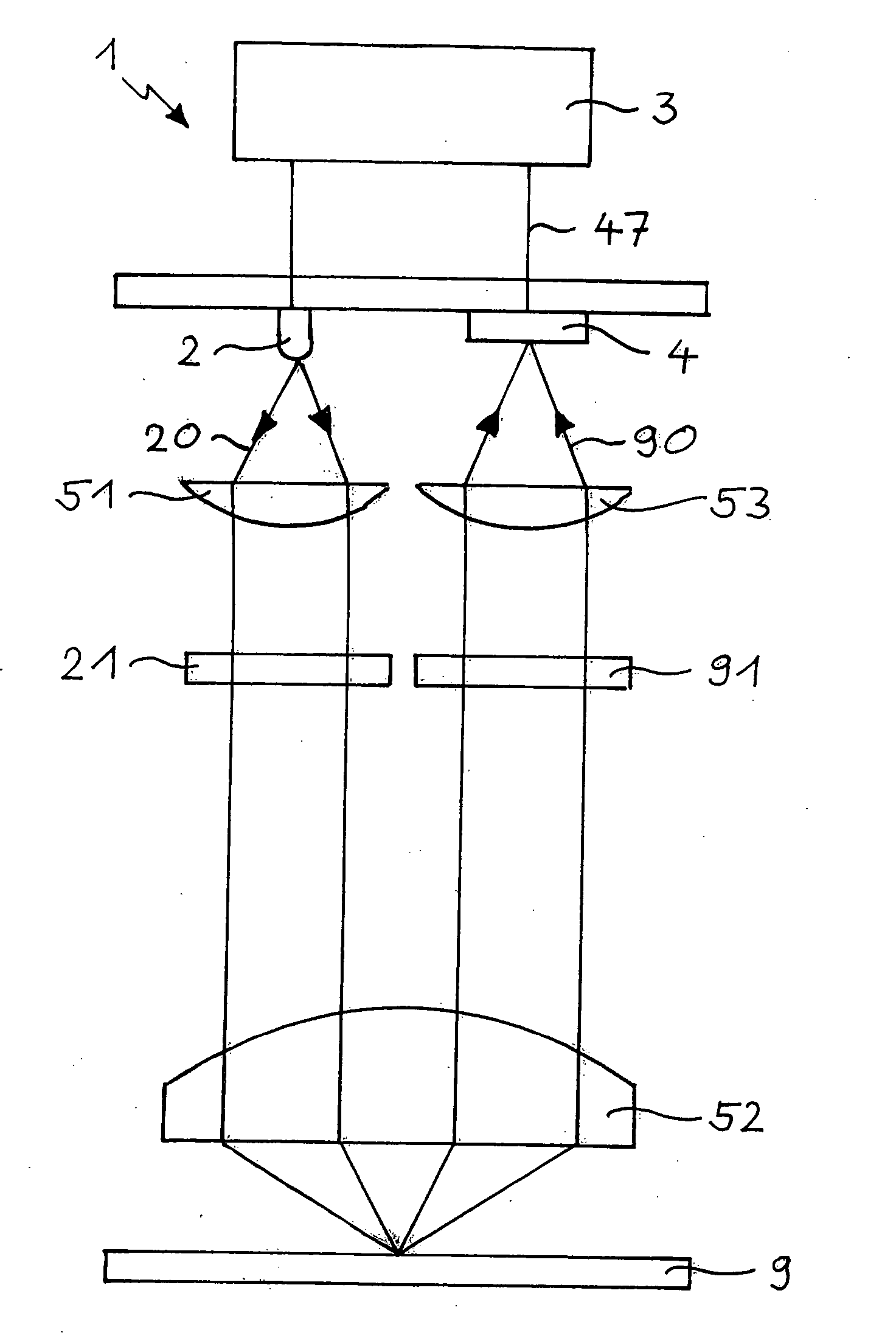Apparatus and method for all-solid-state fluorescence lifetime imaging
a fluorescence lifetime and imaging apparatus technology, applied in the field of time-resolved luminescence measurements, can solve the problems of reducing the cost of laser operation lifetime and subsequent operation costs, affecting the reliability of the measurement, and not being ideal for robust and efficient measurement of nanosecond or sub-nanosecond decays. achieve the effect of more cost-effectiveness
- Summary
- Abstract
- Description
- Claims
- Application Information
AI Technical Summary
Benefits of technology
Problems solved by technology
Method used
Image
Examples
Embodiment Construction
[0029]FIG. 1 schematically shows important components of the FLIM 1 according to the invention and trays of the rays therein. In an experiment, a fully automated Axiovert200M microscope (Carl Zeiss Jena GmbH, Jena, Germany) was used as the base of the FLIM 1, the necessary adaptations having been made thereto. Excitation light 20 is provided by a light source 2 modulated at a modulation frequency of, e.g., 20 MHz. The light source 2 may be, e.g., a solid-state Compass laser (Coherent Inc., Santa Clara Calif., USA) emitting light 20 at a wavelength of 405 nm, or an NSPB500S LED (Nichia Corp., Japan) peaked around 470 nm. In the latter case, the excitation light 20 is preferably filtered through an excitation filter 21. The excitation light 20, collimated by a collimating lens 51 and filtered by the excitation filter 21, is directed towards a probe 9. In an experiment, the probe 9 was turbo-sapphire (TS) green fluorescent protein. A lens 52 of the microscope is used for focusing the e...
PUM
| Property | Measurement | Unit |
|---|---|---|
| modulation frequency | aaaaa | aaaaa |
| modulation frequency | aaaaa | aaaaa |
| frequencies | aaaaa | aaaaa |
Abstract
Description
Claims
Application Information
 Login to View More
Login to View More - R&D
- Intellectual Property
- Life Sciences
- Materials
- Tech Scout
- Unparalleled Data Quality
- Higher Quality Content
- 60% Fewer Hallucinations
Browse by: Latest US Patents, China's latest patents, Technical Efficacy Thesaurus, Application Domain, Technology Topic, Popular Technical Reports.
© 2025 PatSnap. All rights reserved.Legal|Privacy policy|Modern Slavery Act Transparency Statement|Sitemap|About US| Contact US: help@patsnap.com



